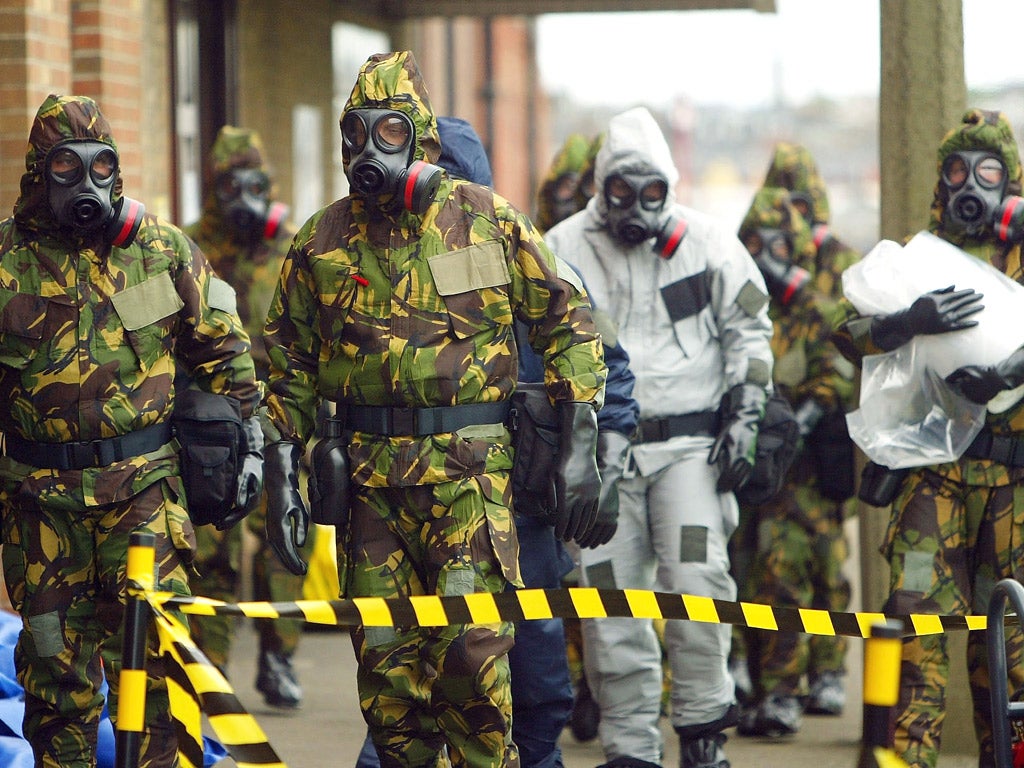Frightening: How easy is it to launch a biological attack? Really easy, says MoD expert
'Do you know what was in the sandwich you had at lunchtime? When you walked in today and saw someone polishing the floor, how do you know it is floor polish? '

It remains "really easy" for terrorists to launch a biological attack by spreading disease among the population, according to the Ministry of Defence's Director of Infection Prevention and Control.
Giving a lecture at independent defence think-tank the Royal United Services Institute to coincide with European Antibiotic Awareness Day, Group Captain Andy Green also said younger people were today likening HIV/Aids to a "sore throat" as their risk perception had changed due to the ability to manage the illness.
Responding to a question on how feasible it would be to deliberately introduce a disease to the UK that could lead to pandemic, GC Green said: "Do you know what was in the sandwich you had at lunchtime? When you walked in today and saw someone polishing the floor, how do you know it is floor polish? You start thinking about what you did and didn't see. How easy is it to do? The answer is 'really easy'.
"There have been a number of suspicious outbreaks in the UK of common easily transmissible infections."
GC Green cited the outbreak of dysentery in Haywards Heath in 1998 which affected 40 people and was traced back to the salad bar at the local Sainsbury's.
"What is stopping anybody putting a syringe full of something (into a supermarket salad bar)? It comes back to what your strategy is. If you want to cause terror you don't have to do very much at all."
Speaking the day after HMS Daring had arrived in the Philippines to distribute aid as part of the UK's response to the devastation wrought by Typhoon Haiyan, GC Green said countries must coordinate their efforts if they want to avoid the problems experienced following the 2004 Boxing Day tsunami.
He said: "We're not putting in a heavy medical contingent. Other nations have that capability…we will be going in to help with broader initiatives. I suspect it will initially be reconnaissance rather than emergency (relief). The whole point with any disaster relief intervention is that it needs to be organised.
"The Philippines, it sounds odd, is lucky in that it is just one country - one of the difficulties with the tsunami is that it affected a number of different countries and there was no concerted regional response. You had some countries supporting, for instance, supporting Sri Lanka, others going to Indonesia, others to Malaysia - and it got very patchy and fragmented."
GC Green also spoke during his lecture about how the British attitude towards HIV/Aids has changed since the introduction of effective drugs in the mid-1990s.
He said: "HIV/Aids has just become in the UK just another treatable disease, it's just dropped off our radar.
"The at-risk population are saying 'why is it different to gonorrhoea or a sore throat? I can just go to the doctor and get an antibiotic'. You can't, because you still need to carry on taking the drugs. There is clearly a difference in risk perception."
Join our commenting forum
Join thought-provoking conversations, follow other Independent readers and see their replies
Comments
Bookmark popover
Removed from bookmarks